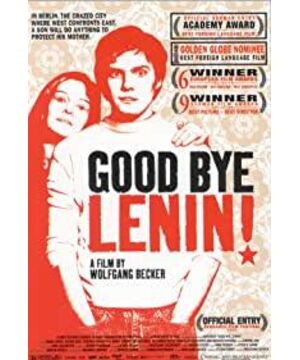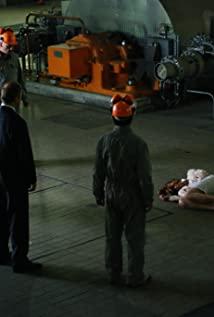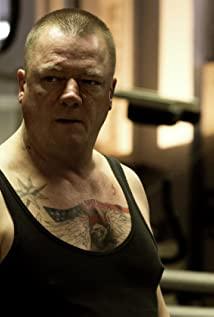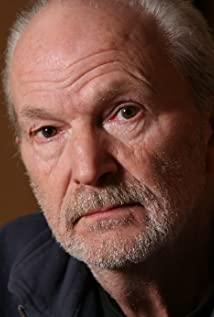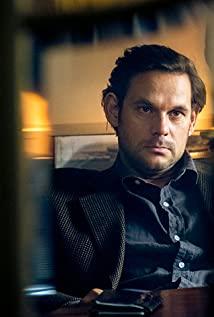The most recent social change to us is the drastic changes in the Soviet Union and Eastern Europe in the early 1990s. In just a few days, the backbone of the socialist camp completely collapsed, and the Soviet Union and Eastern European countries were transformed into capitalist countries. Take the reunification of the two Germanys as an example. Before the reunification, West Germany had a mixed economy, with a higher degree of industrialization and a more developed society; East Germany had always been a planned economy, with low production efficiency and poor infrastructure construction. Medical care is better than West Germany. The reunification of the two Germanys is the first merger of capitalism and socialism in the world. There is no experience of success or failure to follow. It can only move forward step by step. However, a large number of East German people have difficulty adapting to the changes in many fields such as social economy, politics, culture, ideology, etc. The backward eastern region has caused the unbalanced political and economic development of Germany. As a result, many social problems left over from this political storm still remain to this day. troubled Germany.
The German film "Goodbye, Lenin" takes place before and after the merger of East and West Germany. Mrs. Christina Cornell was a model worker in East Germany, a heartfelt supporter of socialist East Germany, while her husband had fled to West Germany. On the eve of the turmoil of the merger of East and West Germany, Alex, who loved his mother, felt very guilty because he saw his son Alex being taken away by the military police during the parade and suffered a myocardial infarction. At the same time, the Berlin Wall came down, the two Germanys merged, and Germany was transformed. Eight months later, my mother, whose memory was still in East German socialism, woke up, unaware of the changes in the outside world. In order to avoid the stimulation of social change for his mother, Alex began to create an "East German society" for his mother at home. The mother was thus able to live in the old GDR: including the clothes of the neighbors, the news on TV, and the canned food of the Soviet Union. However, it is impossible for Alex to cover up the huge real world with his good intentions, and his mother did not expose it after she noticed it. In the end, the mother left happily in the beautiful world woven by her son.
The film fully restores the social conditions before and after the reunification of the two Germanys, and highlights the various faces of the East German people under the comprehensive social transformation. It is not difficult to see that this social change and the subsequent social transformation brought not only the road to freedom of the East German people, but also the East German people have also experienced the test of social role transformation and imbalance on the road to freedom.
In the face of social change, people are under tremendous psychological pressure because it is difficult to adapt to the sudden changes. The contradictions intensify and conflicts arise, which affect people's normal social role-playing and lead to frequent occurrence of social role dissonance.
In the movie, the conflict between the characters is the source of force that pushes the plot wave after wave. Alex encountered many obstacles when building a 79-square-meter hut in the GDR for his mother, including not finding the Soviet food that his mother wanted to eat, difficult to solve his mother's request to watch TV news, and to everyone who appeared around him. (Including Sid's brother-in-law, nurse girlfriend Laura, etc.) A socialist family background and identity, etc., these have caused everyone's dissatisfaction and contradictions with Alex, and the conflict has arisen. And Alex himself has two identities. Outside is a new German society. Once he walks into the house, everything returns to the era of people's morality. As a dutiful son, he truly loved his mother and did everything in his power to satisfy her wishes (these simple wishes were made especially difficult by social change); as a young man of high character, he had been weaving a big lie for her mother . This kind of role conflict constantly changing between reality and lies makes Alex's life chaotic and difficult. And when Ariana met her biological father who ordered food at work, she still couldn't recognize each other, so she could only say helplessly: "Thank you for choosing Burger King, I wish you a good appetite..." The only way to resolve the role conflict is It can be to make the role single in the case of different norms and reduce conflict, that is, only play one role in one situation. Alex's choice was to carry the lie to the end, sticking to a nihilistic role until his mother's death. After his mother's death, Alex had a thought-provoking monologue: "This country (referring to the people Alex built for his mother) has never existed in reality, but we let it exist until the end of my mother's death. For a moment; this country, I think of it only when I think of my mother."
In addition to the role conflict, the roles of the "two fathers" in the film epitomize the disruption of social roles. Alex has always imagined his real father, the so-called defector, as a big fat man lying by the pool, eating junk food, and smelling of capitalist decadence. And his spiritual father, the first German to roam in space, Sigmund Jean (East German), is a national heroic idol in his eyes. The typical role interruption of the biological father becoming the negative image in the son's eyes because of his defection is actually an ideological imagination of Alex. When he found out that the "spiritual father" and former astronaut Sigmund had become a down-to-earth taxi driver, while his imagined vulgar and ugly father was still handsome, he suddenly understood something. Heroes are not eternal myths. When their light disappears and their roles are interrupted, they can still calmly continue their roles as normal people; and ideology's dominance of people often leads to wrong perceptions of social roles. When our own roles are interrupted, we should not be discouraged or discouraged, but face it, embrace it, and make it better in our new role. When we face disruptions in the roles of others, the most important thing is understanding and caring.
In a period of social transformation, role failure often occurs, which is also one of the most serious disorders. In the film, there is no single typical role listed, but a reflection of the situation of a group - the middle-aged and elderly people. After the merger of the two Germanys, the unemployed middle-aged and elderly people lamented that the capitalist life was difficult to adapt to, and they often missed the spiritual prosperity and the stability of the planned economy during the socialist period. Among them are Mrs. Shafir, who likes to ask Mrs. Cornell to write her submissions, Mr. Gansk, who complains about the decline of living standards all day long, Mr. Klepass who drinks heavily after losing his job, sober and envious of all the changes. The ignorant Mrs Cornell. These people used to have clear and stable social roles, but now the role of this group has failed, largely due to changes in the external environment, but their subjective thoughts and ideological pessimism Also contributed to the level of failure. The key to solving the role failure lies in the handling of the failure situation. Proper handling can also make a turnaround in the predicament. When a person faces a role failure, the necessary reflection and the summary of experience and lessons can make people see the direction of success, emancipate their minds, rebuild themselves, and finally find a new role.
During periods of social change and transition, young people tend to adapt more easily to their new social roles. Young people have good physical and psychological qualities, flexible thinking, positive and optimistic, and they are better equipped to adapt to and accept the setbacks and challenges brought by changes in the external environment, which is crucial for determining, adapting and playing their social roles well important. Alex was a repairman in a TV repair cooperative before the reunification of Germany, and after the merger he became an employee of a satellite TV company. At first, the work did not go well, and Alex, who was used to passively repairing the TV, now needs to take the initiative to sell it. After repeated rejections and failures, finally, the satellite TV receivers on the balconies of an entire residential building gleamed in the sunset, as a portrayal of the successful cooperation between Alex and Daniel. In addition, Alex's sister Ariana won the title of "Excellent Waiter" in her new job at "Burger King", and the constant calm attitude of Soviet trainee nurse Laura throughout the transformation process is also the active participation of young people. Social interaction, and strive to play a prominent role in their social role.
In addition, young people are in the period of forming mature values. They neither have deep-rooted traditional values nor blindly follow other people's value guidance. They have their own views and opinions about society, and they will adjust their value orientation in time. to adapt to the prevailing trends in society. In the movie, the nurse Laura couldn't help telling Mrs. Cornell the real social situation and said: "...the Berlin Wall has come, the dividing line is gone, it's not bad, it's already a country..." When Alex "recorded" the last episode of the show for his mother who had not been many days, his speech for Sigmund Jean, who played the new leader, brought the whole show to a climax - "... I know our country is not perfect, but what we believe in always inspires many people around the world. Maybe we sometimes lose sight of our purpose, but we do think, 'What is socialism?' The frog in the well It is not socialism to stand still; it is socialism to be open-minded, to face others, and to coexist peacefully with other countries. It is not only to dream of a better world, but to realize it.” This kind of plot changes the radical impulse of young people during the period of social change. The image of them as rational and the first to comprehend and adapt to their role models, bringing comfort and hope to people in confusion.
The role played by each person has its moments of glory or loneliness in society, just as every star will still dim after it shines extremely brightly. When Alex and the others put his mother's ashes into the small rocket fireworks, and the gorgeous fireworks burst into the sky, everyone may have an answer in their hearts. This is a farewell to the past. Don't end up in the good old stuff, rather start with the bad new stuff.
View more about Good Bye Lenin! reviews


